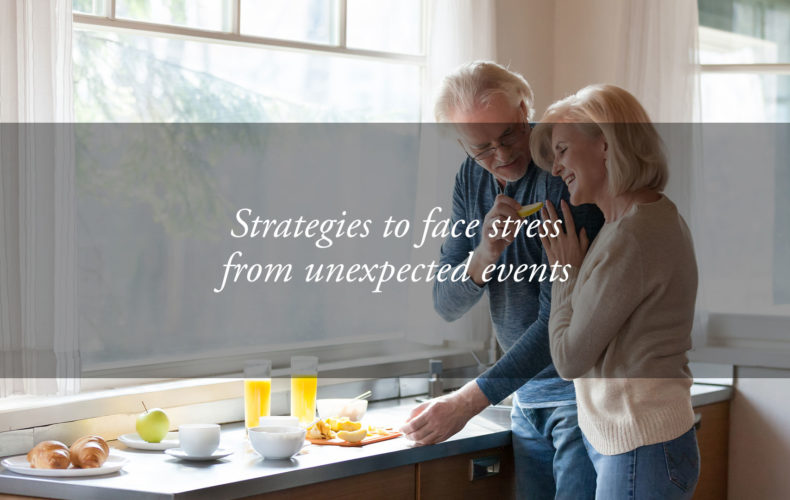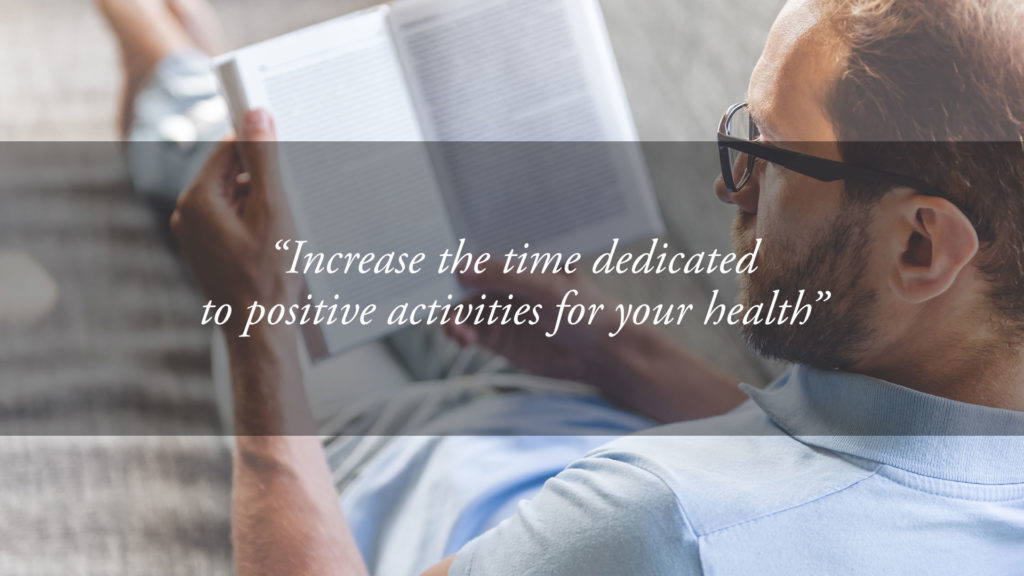
Anxiety and stress from unpredictable events: how to react
An unexpected traumatic event can result in different subjective or collective manifestations: an unexpected mourning, a failure that was considered impossible, a separation believed to be avoidable. Or, as in these weeks, a public health problem so great that it has deeply affected the life of every person in the world.
The nature of human beings makes them reluctant to change. When a change is sudden, complex and out of the box, it is even more difficult to cope with it and adapt to it. An event like the Coronavirus pandemic, which we can’t control and cope with, can generate severe anxiety as well as psychological and physical stress as well as create very intense emotions.
NORMAL REACTIONS BEFORE STRESS
The Polyvagal Theory by Stephen Porges helps us understand the way in which the nervous system reacts to the stress generated by unexpected events by defining a hierarchy of stages that corresponds to three evolutionary phases of animal biology.
STAGE 1 – IMMOBILIZATION: this is the primordial and oldest biological reaction. A living being facing a sudden danger becomes frozen and paralyzed. The behavioral manifestations of this stage are emotional shutdown and functional withdrawal.
STAGE 2 – MOBILIZATION: this is the most common reaction before negative uncontrollable events. The sympathetic nervous system reacts and copes with danger with a fight or flight response that aims at preserving survival. So, we can understand some extreme exaggerations of this period that have caused the creation of borders and barriers or, vice versa, aggressive ways of claiming one’s rights such as hoarding food or defense weapons.
STEP 3 – SOCIAL COMMITTMENT: this is the most evolved reaction that includes sharing choices with other human beings for developing a common solution. During the Coronavirus pandemic, this is one of the responses we miss the most because it is impossible to share spaces and resources with other people.
It is exactly the lack of the social commitment that has led us to use and process other strategies to cope with anxiety, stress and fear for unexpected events such as the Coronavirus pandemic.
HOW TO REACT To STRESS, ANXIETY AND FEAR
Let’s see the possible strategies to deal with anxiety, stress and fear for unexpected events.

our ROUTINE without the causes of stress
Constantly thinking of the causes of our emotional state of anxiety and stress is a psychologic mechanism that self-feeds. In the current situation, the media sustain this mechanism. Therefore, searching for reassuring information leads us, on the contrary, to run into contradictory and anxiety-inducing news.
The first piece of practical advice is to organize your daily routine – even emergency ones – by excluding the causes of stress such as drastically reducing the need of getting news, using social media or navigating news websites, preferring only official sources. Intentionally limit having or listening to speeches, discussions and debates about topics that create anxiety. Increase the time you dedicate to positive activities for our health such as reading a good book, getting physical exercise, writing, being challenged intellectually and playing.
It would be better that these new routine activities were scheduled and made official as if they were work meetings you can’t miss.
the use of paradox
Alfred Adler, one of the fathers of modern psychology, introduced, in the western world, the practice of Zen paradox, which is the ability to defeat a psychological negative state by focusing on it or even intentionally exaggerating its symptoms instead of treating them.
In the event of stress from a traumatic event, it is recommended that you take a break on your own – even a few minutes are sufficient – to focus on your own sensations of fear. This repeated exercise can have a paradoxical effect and help calm down stress, because deeply, at a psychological level it is as if fear is faced and resolved.
LISTENING TO YOUR BODY

When our mind can’t face stress, our body can help us. The body preserves its own autonomous resilience, which is often independent from other advanced psychological functions: through massage, breathing and resting, our body leads us towards inner calm and gives us back the capability to face sudden and unexpected adverse situations.
Caring for our body through a therapeutic massage, mindfulness and specific breathing exercises will help us find the balance and resolve the crisis caused by a sudden traumatic event.
TRAVELING AND THE HOLIDAY
Travelling has always been an epiphany, a manifestation of the psychological need to change something in our life. Regardless, traveling is meant to get relief from work stress, mourning or a change in a sentimental relationship or – as in this case – from an overwhelming event; traveling and holidays represent a powerful way for our mind and body to get back to our wellbeing and return to daily activities with new strength and energy.
The Coronavirus pandemic makes it impossible to travel and move but we recommend you think of that as soon as the emergency is over. At the Hotel Tritone, we have organized ourselves to welcome you safely as soon as it is possible and to provide you with all the cures to overcome stress, anxiety and fear.
To know more about the initiatives of the Hotel Tritone for the summer of 2020, or to get more information about the way we take care of the physical and psychological wellbeing of our guests, please write here or call (+39) 049 8668099.
